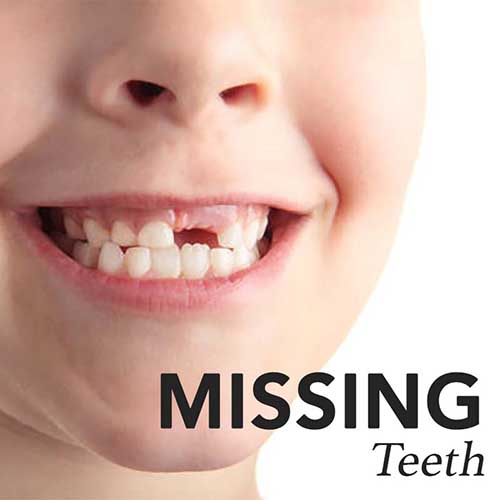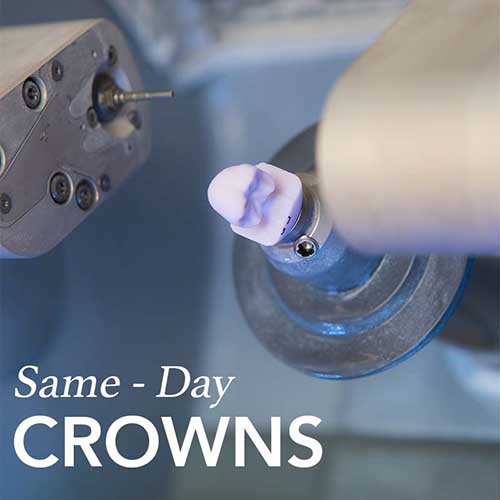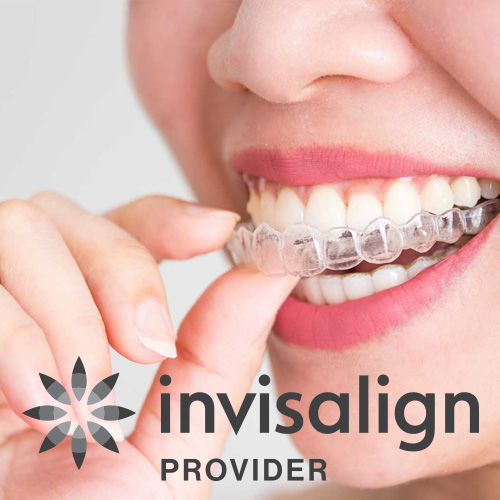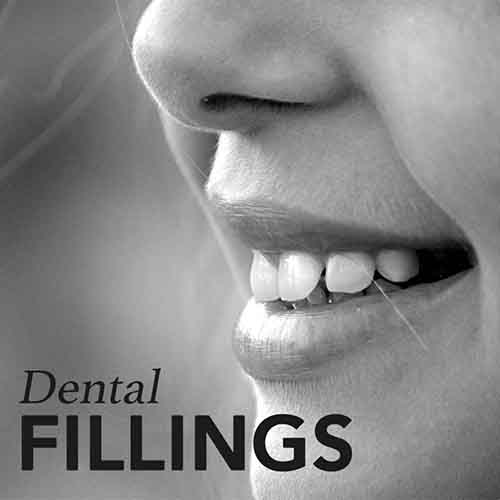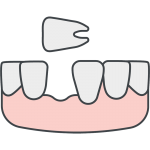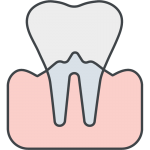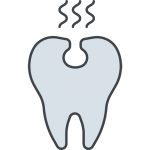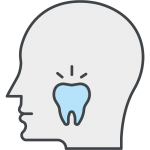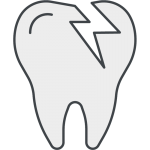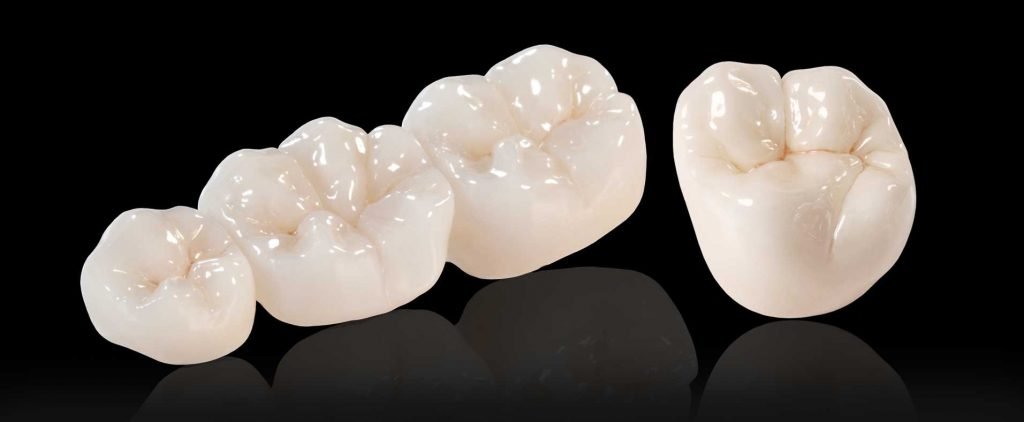
What is a Crown?
A crown or cap is considered when a tooth is too broken down to restore with a dental filling.
A filling that is too big has the potential of breaking off, so a crown is considered to protect the filling and the tooth from breaking away.
Crown construction usually requires some preparation of the tooth, accurate impressions, a temporary crown, and a lab that will construct the crown. – Have a look at our new technology to make Crowns on the SAME DAY!
The constructed crown is then cemented onto the prepared tooth. Materials for making the crown can vary from gold, ceramic, zirconia, EMAX, or a combination, depending on the requirements of the tooth.
When done well, a crown can last more than 10 years, provided that it is well maintained, and regular checks are done to detect and correct any early problems associated with the crown.
Same Day Crowns
Exciting news! Aperture Dental Practice now has the technology to make your teeth restorations (including crowns, inlay, inlays and bridges) within a day!

When is a Crown Required?
At Aperture Dental Practice, we recommend a crown to avoid further fractures when your teeth are affected in the following way:
- A tooth needs to strengthened because of increased damage to the tooth, due to large decay or fillings
- A large part of the tooth has broken off
- A root canal treatment has been done to the tooth
- A dental bridge needs support
- A dental implant has been placed
- Cosmetic reasons
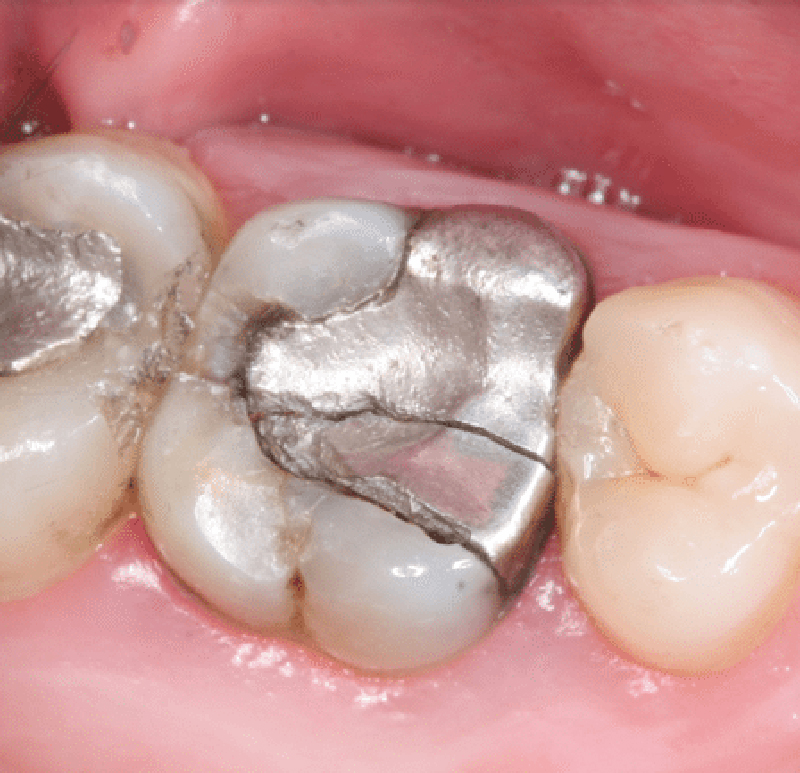
The Advantages of Dental Crowns:
- Protection/ Restoration of Tooth Structure– dental crowns are possibly the best protection for a tooth that is damaged, threatened or weakened by root canal treatment.
- Aesthetics– ceramic crowns are strong and look good and can also be made to restore the original shape and natural colour of your tooth.
- Durability– since crowns are made from high quality and strong material, they can last the longest when compared to other dental restorations. With proper maintenance and care, crowns can last at least fifteen years or more.
What is a Bridge?
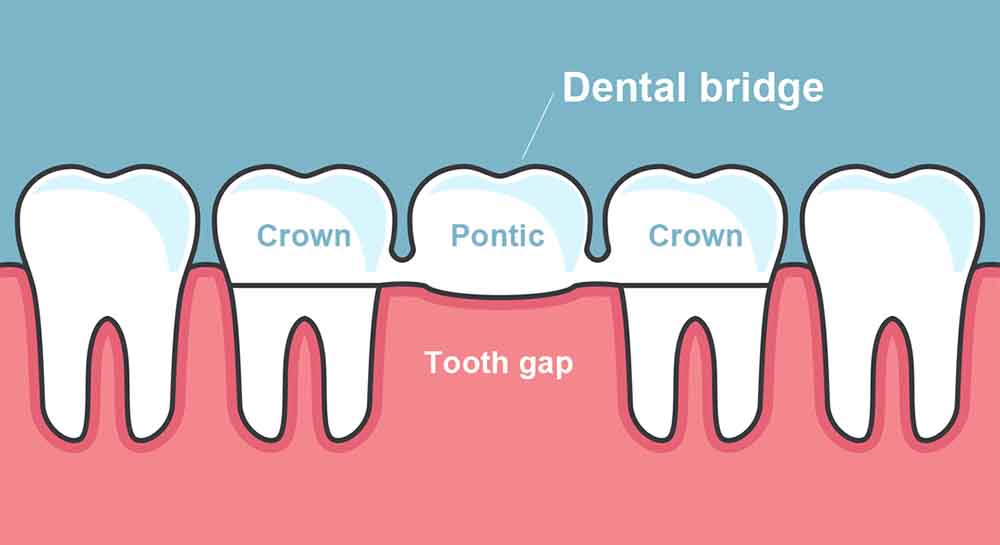
A bridge is one of the three options considered when replacing missing teeth. The other options are either dentures or dental implants. The traditional bridge is made of 2 crowns on each side, and is attached to a false tooth in the middle.
The approximate longevity for a bridge is 7-15 years, although some can last upwards to 20 years.
Unlike a denture, a bridge cemented permanently on the teeth, avoiding the need to remove it regularly!
Types of Dental Bridges:
There are four main types of bridges:
- Traditional/fixed bridges
- Cantilever bridge
- Maryland bridge
- implant-supported bridge
A Fixed Bridge/Traditional Bridge
A fixed bridge consists of two crowns made for the teeth on each side of the gap, and a false tooth anchored between them. This is a non-removable option.
Cantilever Bridge
A cantilever bridge is held in place by a dental crown fitted on one natural tooth next to the missing tooth/gap.
Maryland Bridge
Maryland bridges require a framework of metal or porcelain that is bonded onto the back of two natural teeth on either side of the missing tooth gap. Like a traditional bridge, it can only be used when you have a natural tooth on each side of the gap.
Implant-Supported Bridge
Implant-supported bridges uses dental implants instead of crowns or frameworks to replace the missing teeth. These implants hold the bridge in place
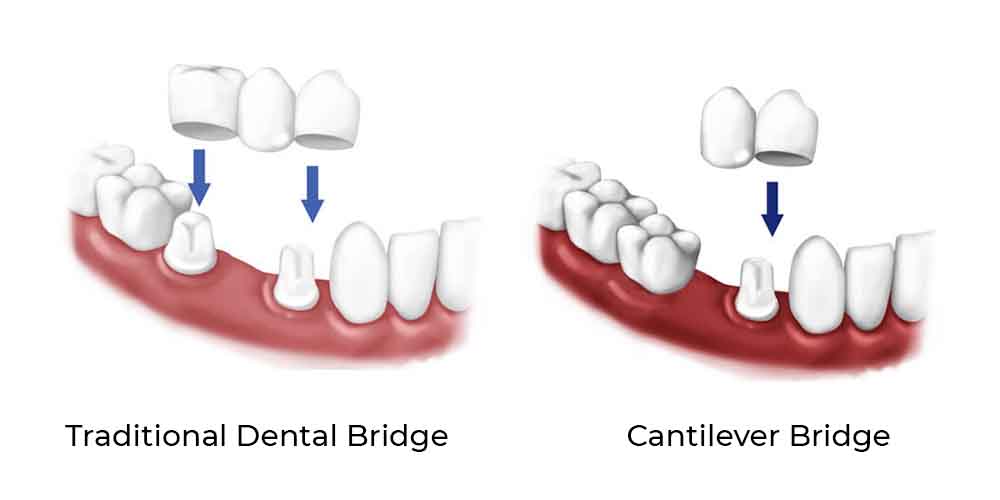
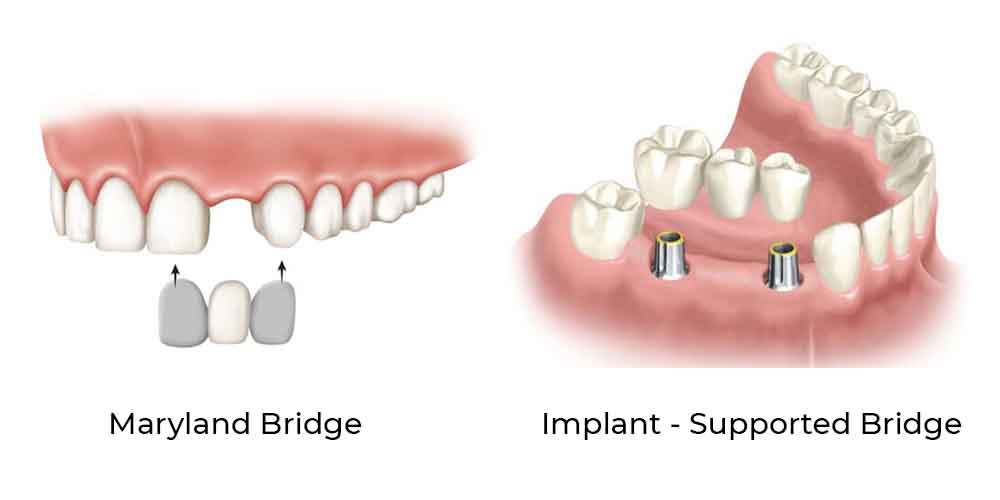
The Advantages of a Bridge:
Bridges are comfortable and permanently bonded into place, allowing you to eat and speak normally.
It does not irritate or push the gums like dentures sometimes do.
It is simple to maintain and clean.
Bridges can last a long time and can help preserve the original shape of your face.
Some Points to Consider:
A bridge is a good option to replace a missing tooth. However, it does not prevent bone loss in the area of the missing tooth.
It is very important to clean the area under the bridge using tools like a super floss, interdental brush, or WaterPik or AirFloss.
A bridge requires a crown preparation on the teeth either side of the missing tooth. This may not be ideal if the prepared tooth is initially healthy in the first place. You may want to consider either the denture or dental implant in this case.
Crowns and Bridges Sunnybank Hills
Would you like to know more about our treatments for crowns and bridges?
Contact our friendly team at Aperture Dental Practice on 07 3188 9477 to find out more. We are more than happy to assist you!
Contact Us
Contact us today to talk about our range of complex, cosmetic and general dentistry. Our friendly Aperture Dentists Sunnybank Hills team will be in touch with you soon. We are conveniently located to service patients living in surrounding areas, including Calamvale, Acacia Ridge, Runcorn, Coopers Plains and Kuraby. We are just a short drive for patients looking for a Dental Clinic in Sunnybank, Mt Gravatt and Macgregor regions.


